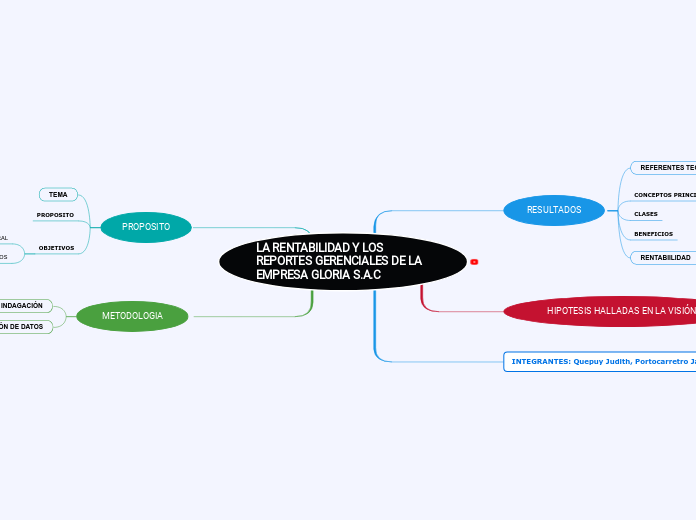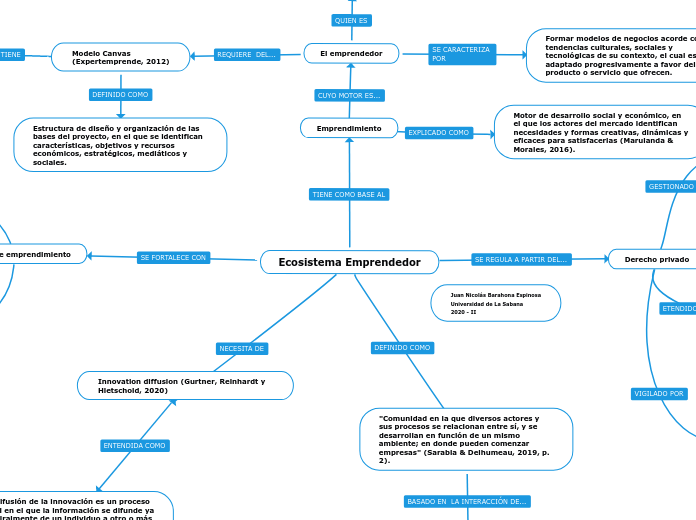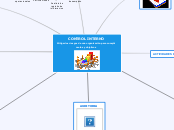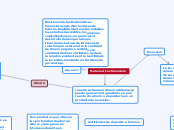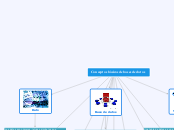LA RENTABILIDAD Y LOS REPORTES GERENCIALES DE LA EMPRESA GLORIA S.A.C
The Solar System is the gravitationally bound system of the Sun and the objects that orbit it, either directly or indirectly. Of the objects that orbit the Sun directly, the largest are the eight planets, with the remainder being smaller objects, the dwarf planets, and small Solar System bodies.
METODOLOGIA
Saturn is known most for its rings.
Galileo Galilei first thought it was an object with three parts: a planet and two large moons on either side.
Not knowing he was seeing a planet with rings, the stumped astronomer entered a small drawing — a symbol with one large circle and two smaller ones — in his notebook.
The rings are made of ice and rock and scientists are not yet sure how they formed. The gaseous planet is mostly hydrogen and helium.
TECNICAS DE RECOPILACIÓN DE DATOS
How long does it take for Saturn to go around the sun?
TIPO DE INDAGACIÓN
PROPOSITO
Uranus is an oddball. It has clouds made of hydrogen sulfide, the same chemical that makes rotten eggs smell so foul.
It rotates from east to west like Venus. Its tilt causes extreme seasons that last 20-plus years, and the sun beats down on one pole or the other for 84 Earth-years at a time.
Methane in the atmosphere gives Uranus its blue-green tint. It also has 13 sets of faint rings.
OBJETIVOS
ESPECIFICOS
GENERAL
TEMA
A planet's day is the time it takes the planet to rotate or spin once on its axis.
Write down Uranus's day measured in Earth days.
INTEGRANTES: Quepuy Judith, Portocarretro Jarleth, Rubio Melissa, Riojas Lesli
HIPOTESIS HALLADAS EN LA VISIÓN
Mars is a cold, desert-like place covered in dust. This dust is made of iron oxides, giving the planet its iconic red hue.
Mars shares similarities with Earth: It is rocky, has mountains, valleys and canyons, and storm systems ranging from localized tornado-like dust devils to planet-engulfing dust storms.
PREGUNTAS RECTAS
How long does it take for Mars to go around the sun?
RESULTADOS
Earth is a water world, with two-thirds of the planet covered by oceans.
It's the only world known to harbor life.
Earth's atmosphere is rich in nitrogen and oxygen.
Its name originates from 'Die Erde,' the German word for 'the ground.'
Earth may once have had two moons, nowadays it has just one.
RENTABIILIDAD
A planet's day is the time it takes the planet to rotate or spin once on its axis.
Write down the Earth's day in hours.
Conocimiento científico
Conocimiento Empírico
BENEFICIOS
CLASES
CONCEPTOS PRINCIPALES
REFERENTES TEORICOS
Our Solar System has eight “official” planets which orbit the Sun.
Each planet is at a different distance from the sun. Name its position.
Las Innatas
Las adventicias
Las fácticas
